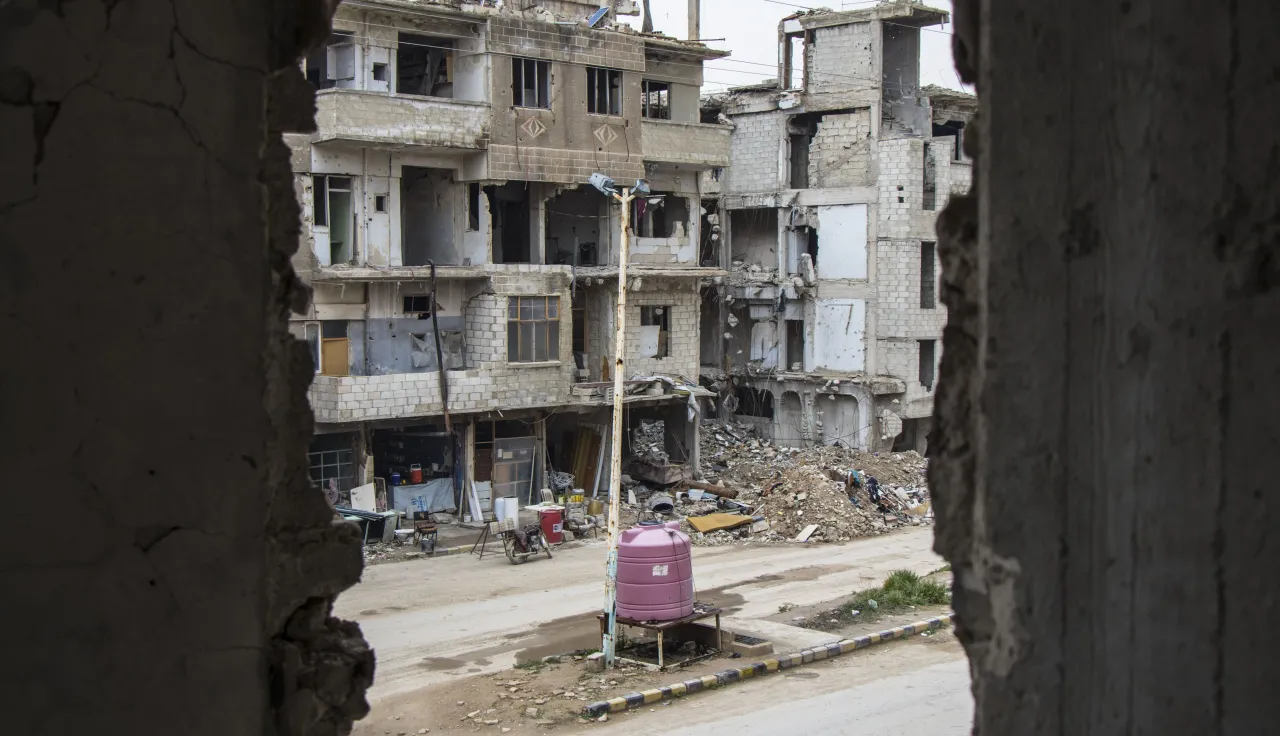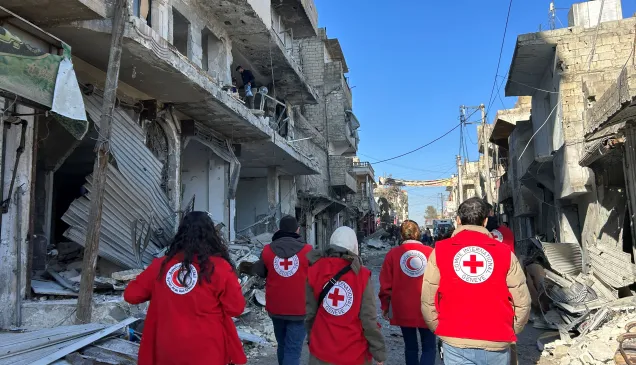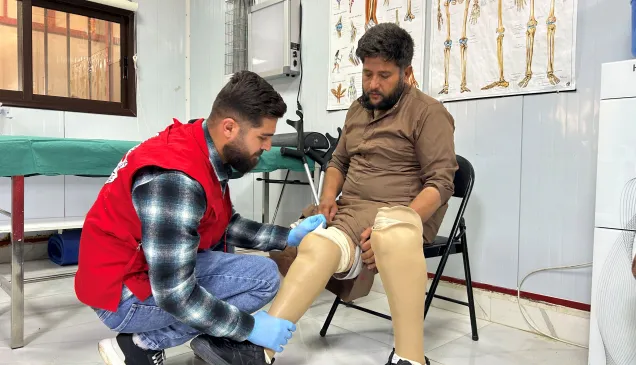Brussels V Conference:
Supporting the future of Syria and the region
30 March 2021, via video
Excellencies, colleagues,
I have just returned from visiting Damascus, the bombed streets of Darayya and Al Hol camp in north-east Syria.
Over the years as I have visited, Syrians have told me of their devastated lives. But today people speak not only of their suffering from the brutal conflict, but of the crippling economic crisis, the impact of sanctions and COVID-19. The lack of hope is utterly pervasive.
Syria is the ICRC's largest and most complex operation in the world. Close to three-quarters of people need help, an increase of 20 percent over the last 12 months. Tens of thousands are still missing and access to basic services remains a daily struggle.
Unquestionably the conflict has been characterized by regular violations of international humanitarian law: disproportionate attacks in urban areas, the targeting of civilians and essential services, and detention without family contact.
There are other conflicts in the world where we see outrageous IHL violations, but it is the level of destruction in Syria that makes it extraordinary – we recall the flattened cities of Homs, Aleppo, Raqqa, and the huge numbers of people displaced and disappeared.
For ten years, ICRC with SARC and Movement partners have endeavoured to feed and shelter those displaced, to treat the injured, to support those searching for missing family members and to visit detainees.
Dear Colleagues - the last decade of violence and brutality has ripped the hearts out of the Syrian people.
The future will continue to be bleak – unless the international community transforms its approach, starting today.
Civilians are paying the price of the lack of a political breakthrough but also of transactional approaches to humanitarian action by all the parties involved.
People should not live in tents, relying on water trucks and food handouts for months, let alone years, let alone a decade.
In this long-running emergency, we need to help people rebuild their lives.
Amid the devastation and the political stalemate, the foundations for the future of Syria are – and must be – humanitarian.
International Humanitarian Law is the pragmatic guide to assist and protect civilians.
Colleagues, today I call on the international community to make long-term financial and political investment on four key humanitarian foundations:
One: Despite political blockages, we must find ways to stabilise essential services to prevent further collapse of the society.
In Darayya I saw people living amongst the rubble of bombed out buildings. They are in desperate need right now of basic supports, such as water, electricity, medical services.
Stabilising critical infrastructure cannot wait – the collapse of these services would force millions of Syrians into an enormous humanitarian crisis. Across the country, over the decade, power generation is down 70 per cent; 30-40 per cent of drinking water production has been lost, 50 per cent of hospitals are damaged or destroyed.
ICRC is rehabilitating essential services across the country and supporting small businesses. Our priority is to bring large-scale humanitarian relief where it's most needed, to make life as bearable as possible.
When humanitarian organizations, like ICRC, repair infrastructure it may look like "reconstruction" or "development". But this is far from the reality. These large and complex humanitarian engineering projects are a stop-gap to prevent whole systems from collapsing.
The international community must step up its political and financial support for an expanded humanitarian response including multi-year commitments. Sanctions that cause suffering for the civilian population, impacting essential services and food security must be addressed.
Second, the fabric of Syria's society needs to be repaired; and this will be possible only if the rights of all are upheld today.
Progress on political talks will rely on humane resolution of key issues such as missing people and detention. These will require long term support and commitment - but much can be done now.
Searching for missing people and responding to the needs of their families is crucial and urgent. Tens of thousands of families are awaiting news and many face deep economic disadvantages. They need to be supported now and for the decades to come.
Critically and urgently: detainees must be treated humanely and with dignity. Whatever the reasons for their detention, they must be allowed to have systematic links with their families and go through a due legal process. The ICRC continues to visit detainees in a number of prisons in Syria. We are in constant and confidential discussion with authorities to improve conditions of detention, on humane treatment, and to allow families to maintain contact.
Third, people detained or living in legal limbo need humane and sustainable answers.
In north-east Syria, such as Al Hol camp, tens of thousands of people, mainly women and children live in squalor.
I was frankly shocked at the conditions; among the worst I have seen – children are malnourished, stunted; they die from treatable diseases. Makeshift tents offer little protection against the escalating violence nor the harsh weather conditions. Their rights are ignored: some are stateless, others risk being forgotten in juvenile centres and places of detention.
There are an estimated 40,000 children in that camp, who have now spent two years living in insecure and life-threatening conditions: This is undoubtedly a child protection crisis on a massive scale.
It is a scandal that the international community is allowing such a place to continue, not because of insurmountable humanitarian challenges, but because of political divergences.
States have turned their backs, failing to live up to their international legal responsibilities either for the foreigners or for the Syrians and the Iraqis.
It is time to find the political will to act before more lives are lost and more futures ruined. Positive examples of repatriation and reintegration do exist. The many challenges cannot be used as an excuse for inaction.
Finally, we call for alleviation of the constraints on neutral, impartial and independent humanitarian action.
At a time when it is acutely needed, the noose on lifesaving action is tightening. The cross-line / cross-border stalemate is holding the lives of millions of people hostage. The ICRC is ready to step up our life-saving action across Syria, including in the Idlib pocket, yet politics blocks our action.
Dear colleagues, it is clear: Syria is in a deadly spiral of suffering, which must be countered by concrete responses and pragmatic action.
Syrians cannot afford to endure another year in these desperate conditions, let alone another decade.




